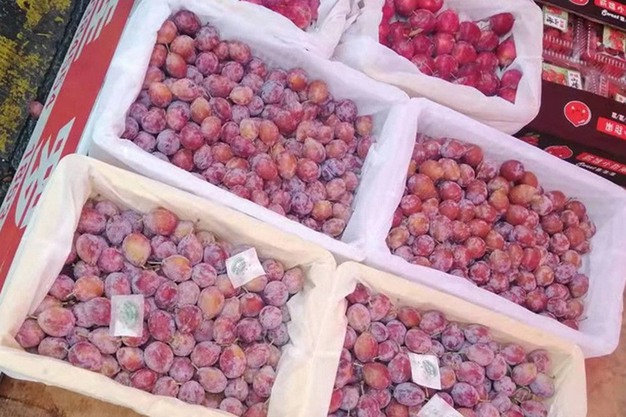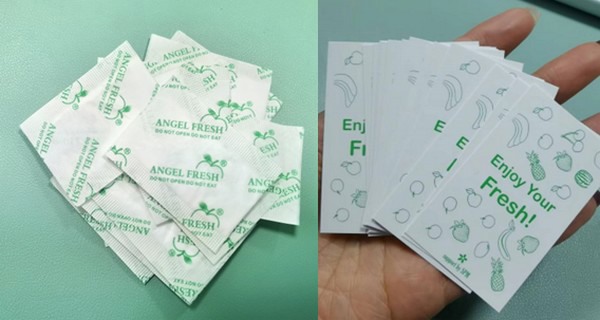Currently, it's the peak sales season for Chilean plums in the Chinese market. The air shipments of Chilean plums have ceased entirely, and the volume of sea-shipped plums in the market is steadily increasing. It typically takes about a month for the large-volume supply to reach the market. This year, the flowering period and harvest in Chilean production areas were delayed by more than ten days, resulting in lower quality fruit across the board, with suboptimal Brix levels compared to last year. It is anticipated that imported plums will reach the end of their sales cycle by early April, presenting challenges to fruit merchants such as fluctuating fruit hardness and taste, as well as elevated losses. SPM Biosciences (Beijing) Inc. specializes in post-harvest preservation services for fruits and vegetables. Their premier product, ANGEL FRESH, is tailored for a variety of fruits and vegetables. Debby from the company highlighted the preservation products developed for peaches, apricots, plums, and other stone fruit crops, along with their advantages.

According to Debby, stone fruits like apricots and plums are predominantly harvested during high-temperature seasons. These fruits respire vigorously, depleting nutrients rapidly and becoming susceptible to rot and deterioration. During processing, stone fruits are prone to mechanical damage during storage and transportation. They may develop brown core when stored at low temperatures and deteriorate quickly at higher temperatures.
"1-MCP is a highly efficient post-harvest preservation product that significantly extends the storage time of stone fruits while addressing issues like water loss and hardness reduction due to transportation delays. The use of 1-MCP in storing plums and peaches in cold storage facilities significantly prolongs their shelf life," explained Debby. "1-MCP preservation is widely adopted worldwide across various fruits. When combined with techniques such as low temperature and controlled atmosphere, it further enhances product freshness."
In addition to cold storage preservatives, Angel Fresh sachets and cards are also flagship products of SPM Biosciences (Beijing) Inc. "Available in various specifications, Angel Fresh sachets and cards suit different packaging sizes, serving every aspect of post-harvest storage and transportation, especially at the retail end. Furthermore, we offer customized freshness solutions tailored to specific packaging and usage scenarios," added Debby.

SPM Biosciences (Beijing) Inc. boasts nearly a decade of experience in the Chinese local market, with its own dedicated R&D, analysis, and service teams. The company has secured sales qualifications in countries such as Argentina and the Dominican Republic and is currently seeking sales agents in other regions. "Apart from our existing range of products, we aim to collaborate with more vegetable wholesalers, exporters, packers, and agents to mitigate vegetable losses in the supply chain. Merchants can also request free samples for testing purposes."
